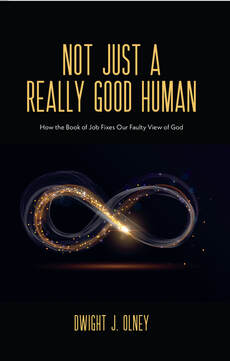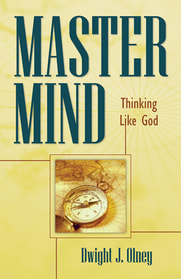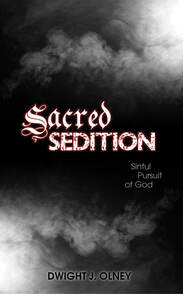CAUTION!
You are now entering a dangerous work zone. Be careful where you step. Hazardous thoughts are being exposed and ripped up. Faulty notions are collapsing under duress. Weak and failing human ideas are being replaced with ideas of divine origin. Minds are being renovated! Proceed carefully.

New Release!
Braun Book Awards Winner
Not Just a Really Good Human
How the Book of Job Fixes Our Faulty View of God
There may be no greater challenge to one’s faith in God than having to endure a shattered life. Anguish weakens every human faculty. The way forward is dark. God’s reputation comes into question. And we are tempted to think the unthinkable—must pain and evil be welcomed as part of the sovereign plan of a good God?
Welcome to the Book of Job.
This ancient tale of a righteous man’s suffering displays the most typical human response to seemingly undeserved hardship. Questions percolate. Maybe God is not that good after all? Maybe he’s weaker than we’ve been told?
When we suffer, God’s stock swiftly declines. When the hurt hits home and we assess the measure of our own personal pain, we often treat God like he is a human who has let us down. Unknowingly, we possess a faulty tendency to imagine God as a top-of-the-line model of humanity, an extremely good version of ourselves.
Not with regard to his creative role of course; we readily accept God’s pre-eminence in that department, as did Job and his friends. But consider how God’s reputation comes under attack when we assess his moral rule of the universe. We are quick to use divine terms to describe God as the sustainer of the stars, but then we use human terms to evaluate him in our own circumstances, particularly when they’re lousy...
Braun Book Awards Winner
Not Just a Really Good Human
How the Book of Job Fixes Our Faulty View of God
There may be no greater challenge to one’s faith in God than having to endure a shattered life. Anguish weakens every human faculty. The way forward is dark. God’s reputation comes into question. And we are tempted to think the unthinkable—must pain and evil be welcomed as part of the sovereign plan of a good God?
Welcome to the Book of Job.
This ancient tale of a righteous man’s suffering displays the most typical human response to seemingly undeserved hardship. Questions percolate. Maybe God is not that good after all? Maybe he’s weaker than we’ve been told?
When we suffer, God’s stock swiftly declines. When the hurt hits home and we assess the measure of our own personal pain, we often treat God like he is a human who has let us down. Unknowingly, we possess a faulty tendency to imagine God as a top-of-the-line model of humanity, an extremely good version of ourselves.
Not with regard to his creative role of course; we readily accept God’s pre-eminence in that department, as did Job and his friends. But consider how God’s reputation comes under attack when we assess his moral rule of the universe. We are quick to use divine terms to describe God as the sustainer of the stars, but then we use human terms to evaluate him in our own circumstances, particularly when they’re lousy...



